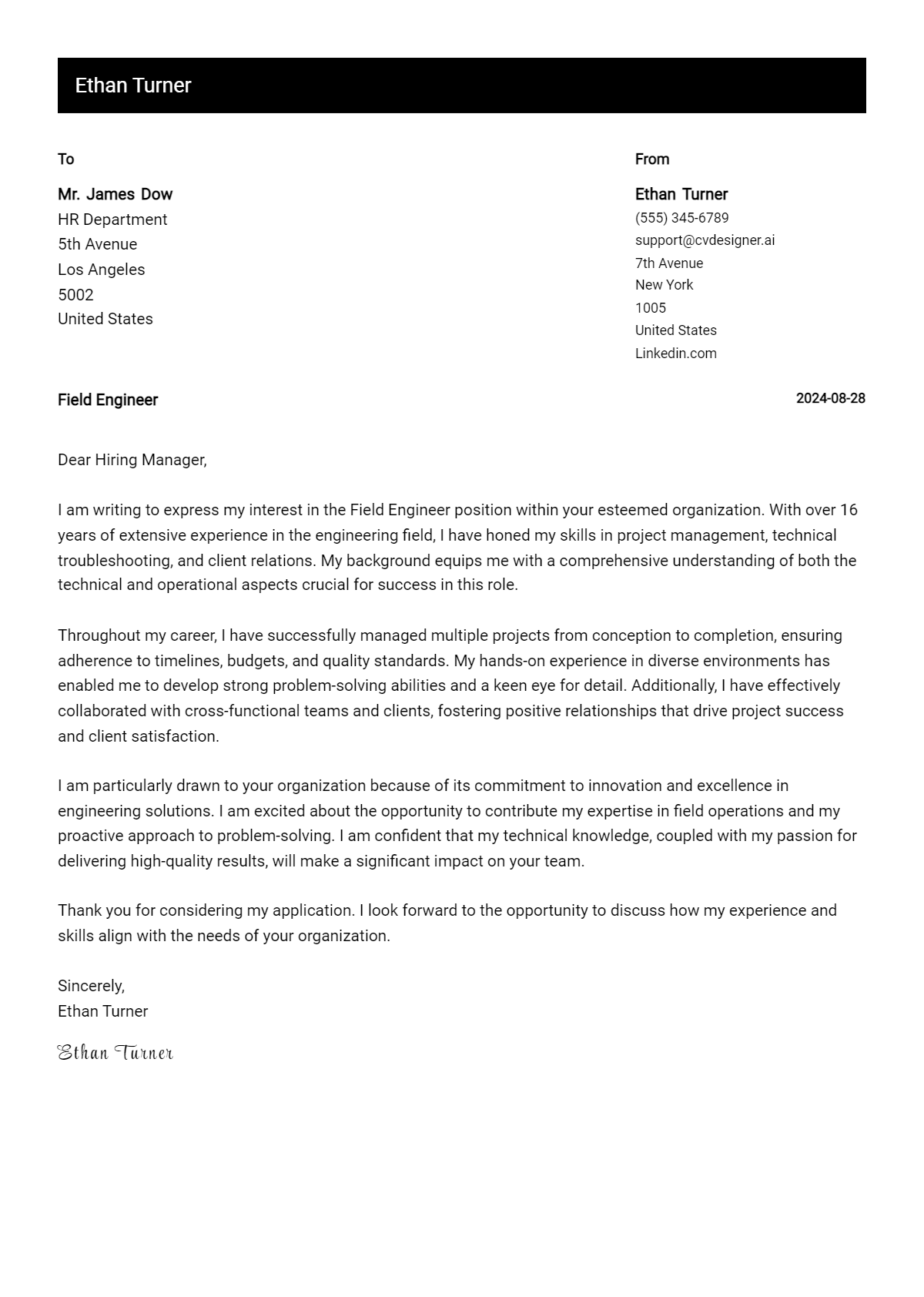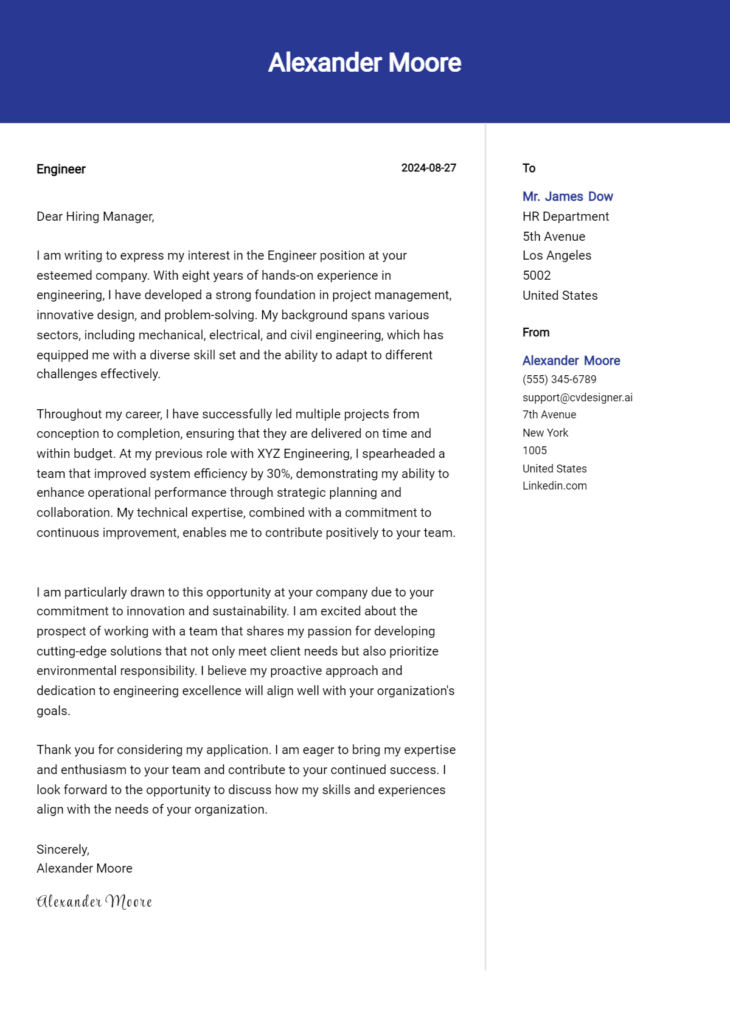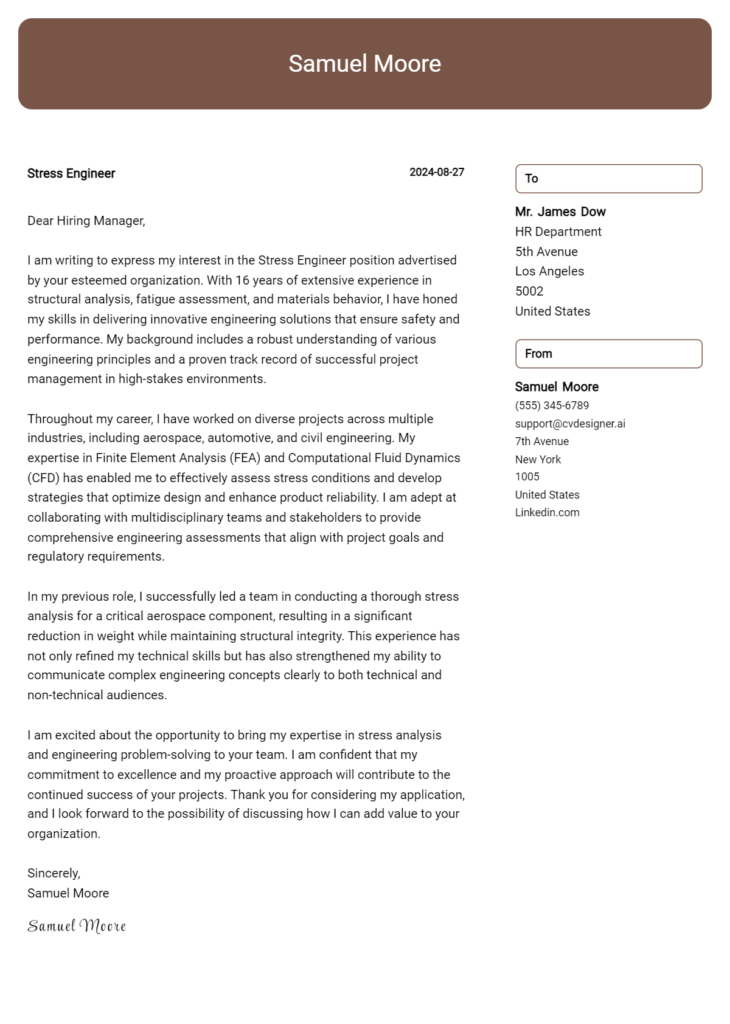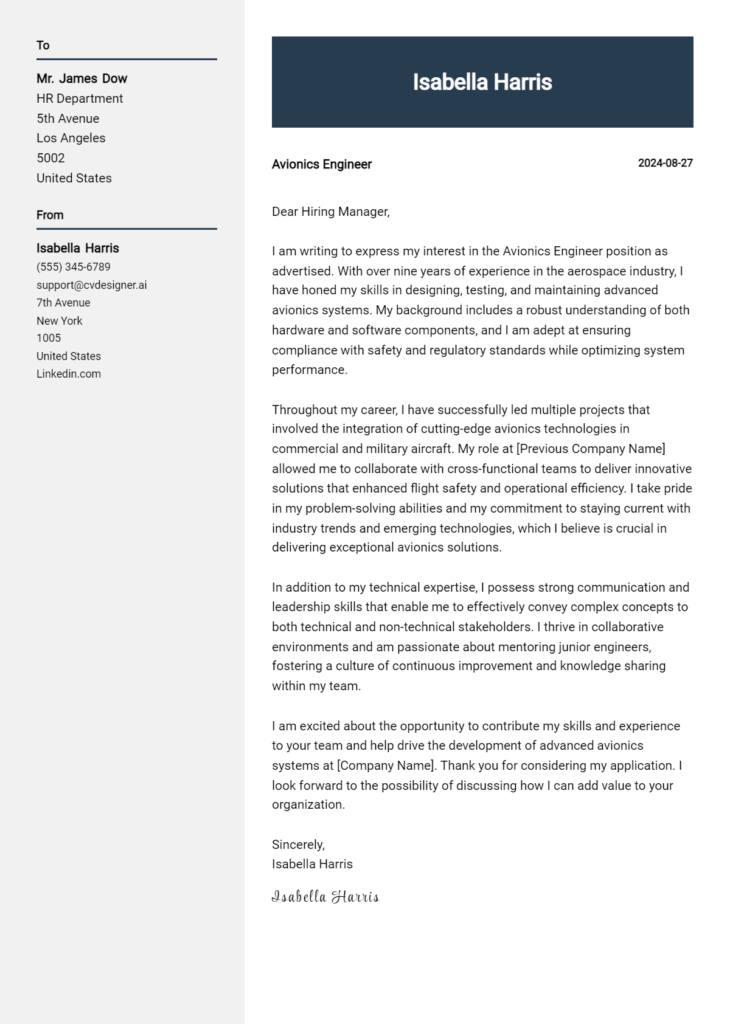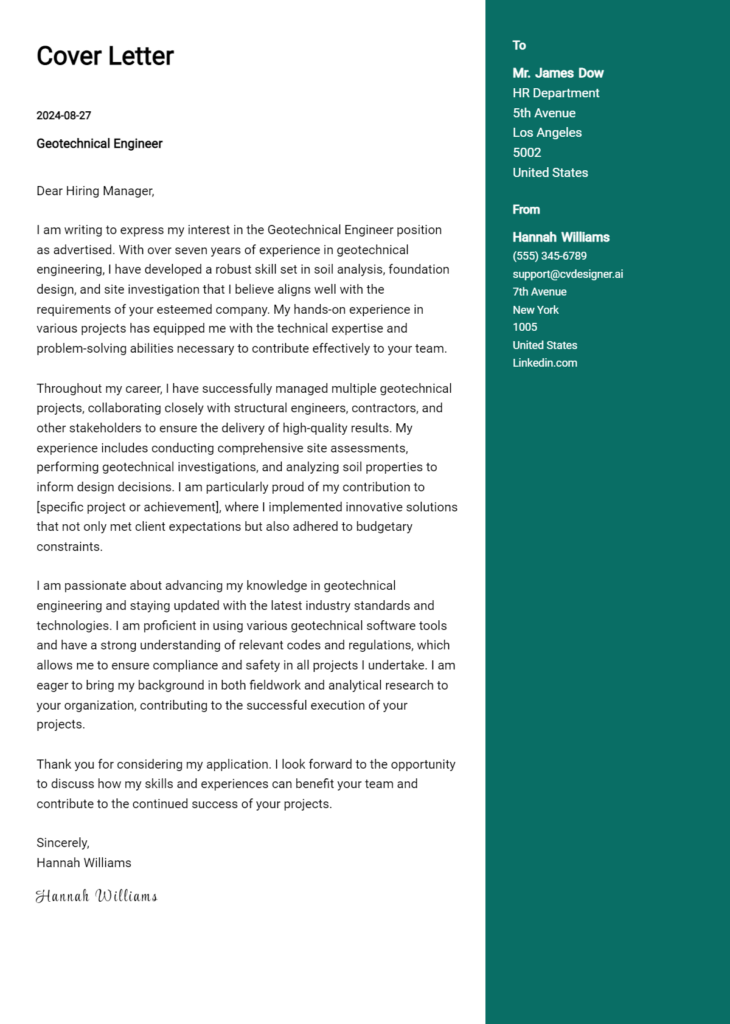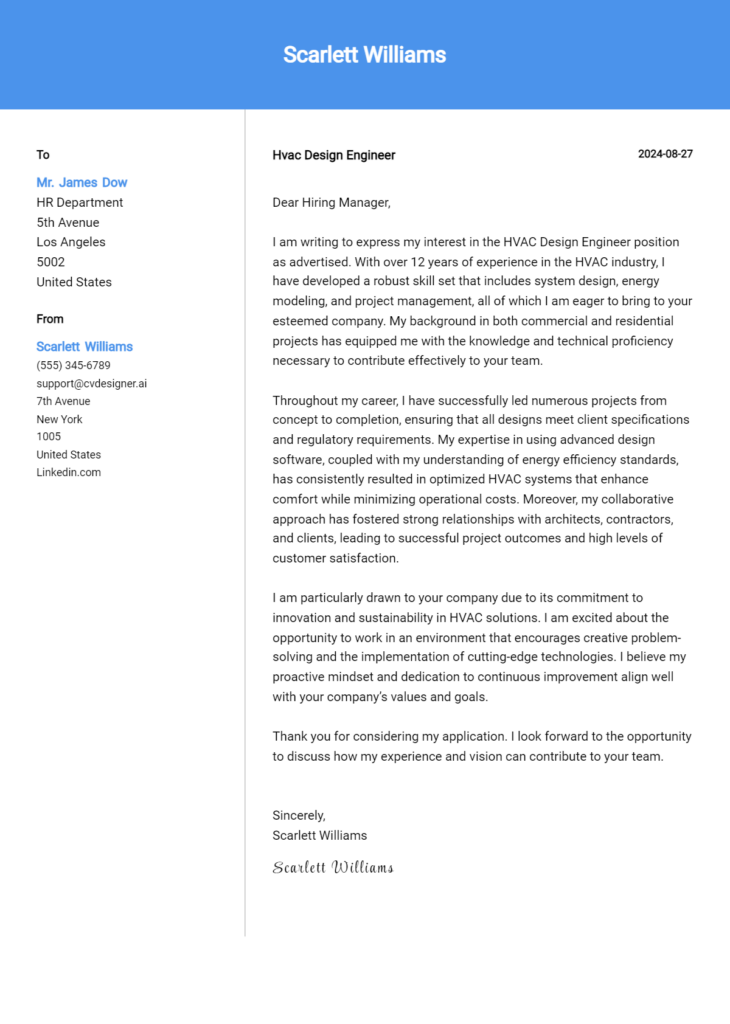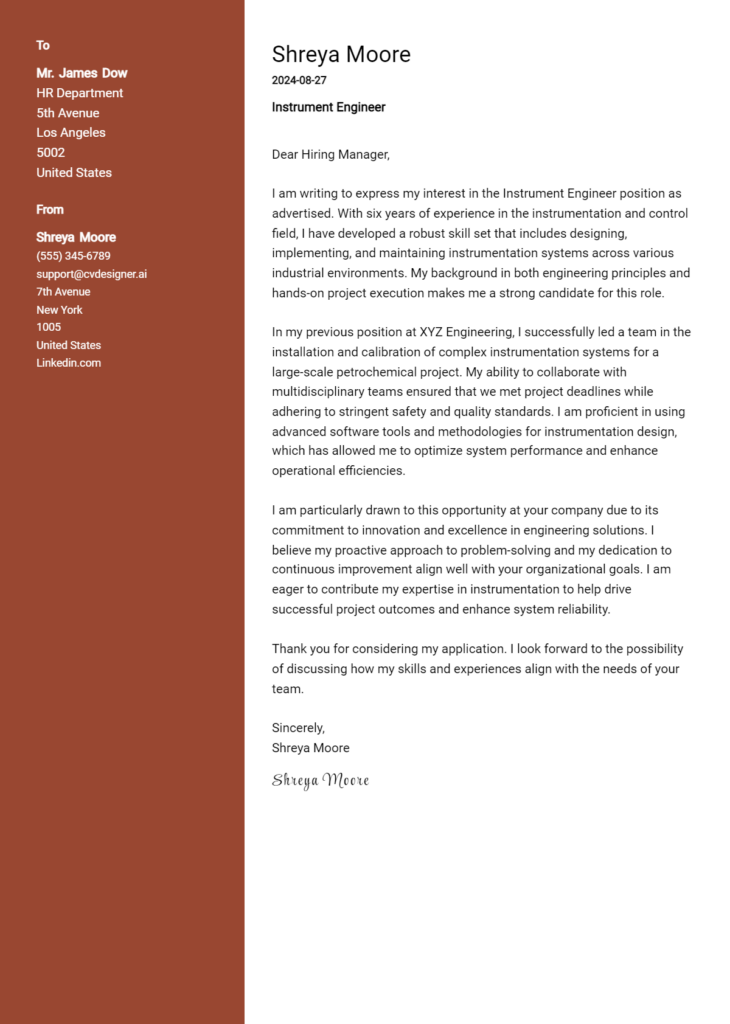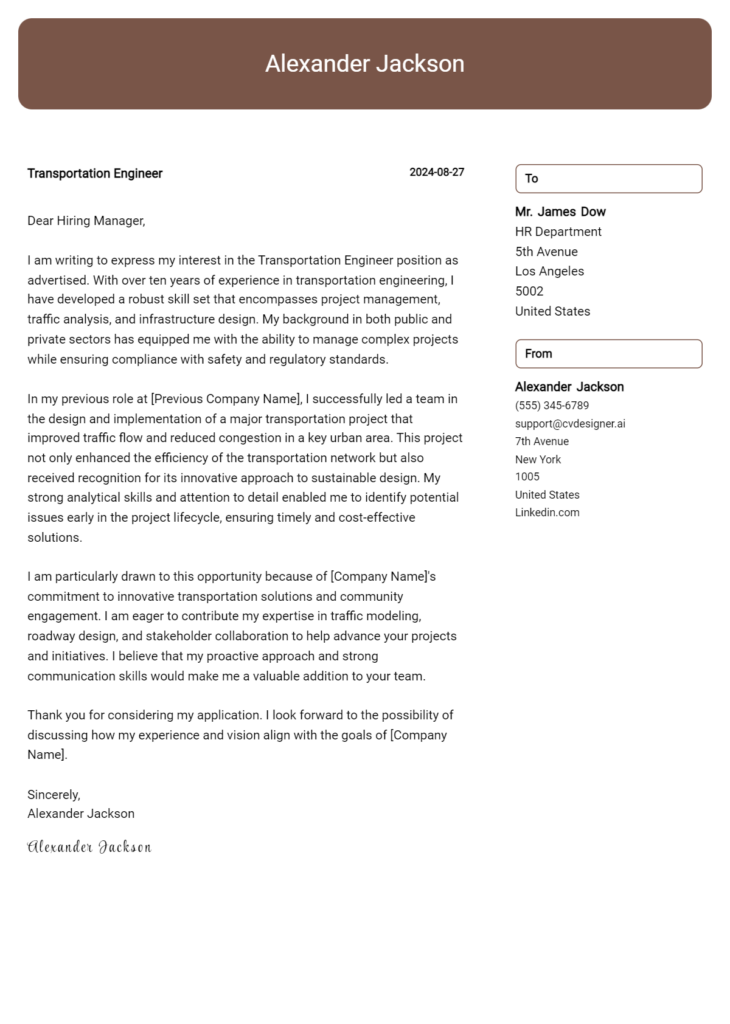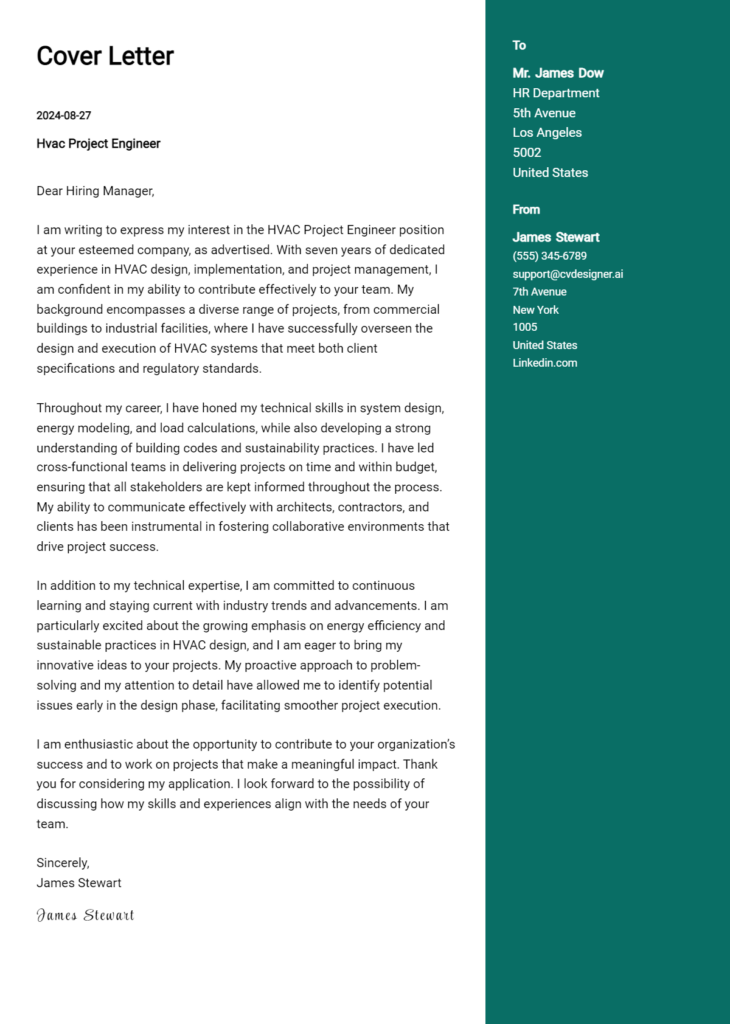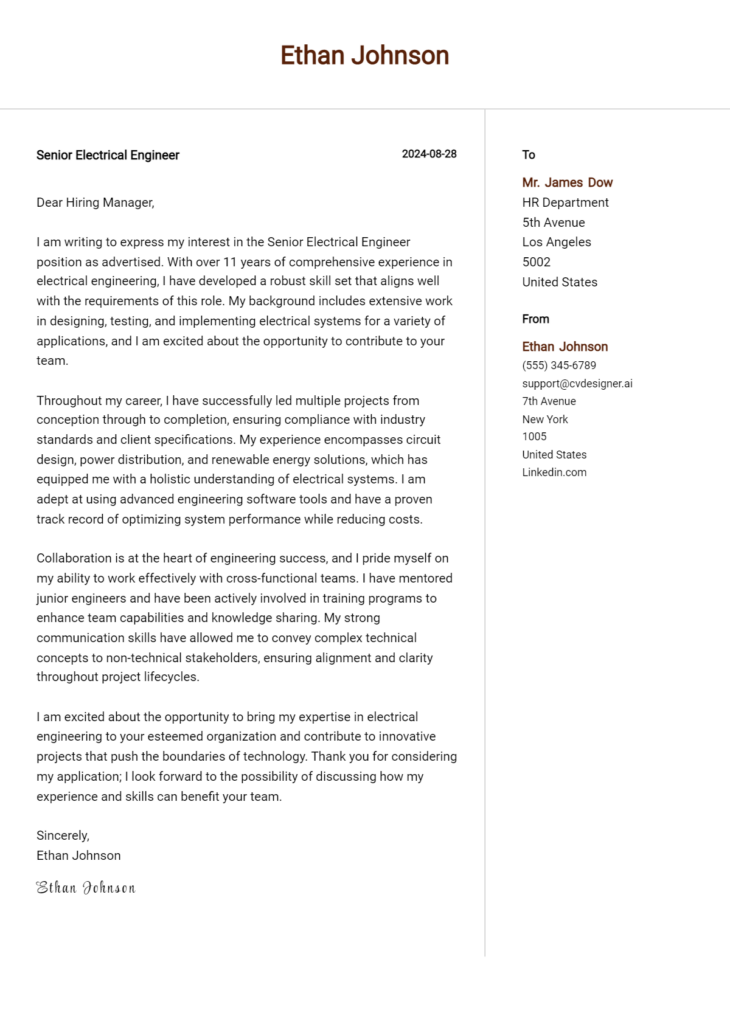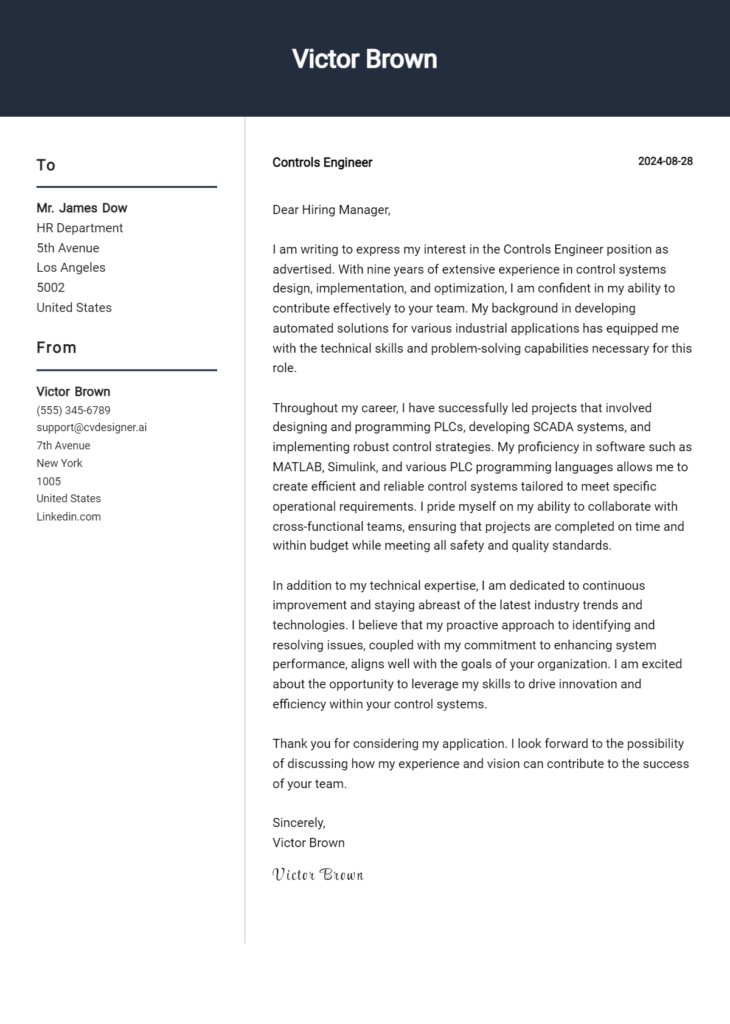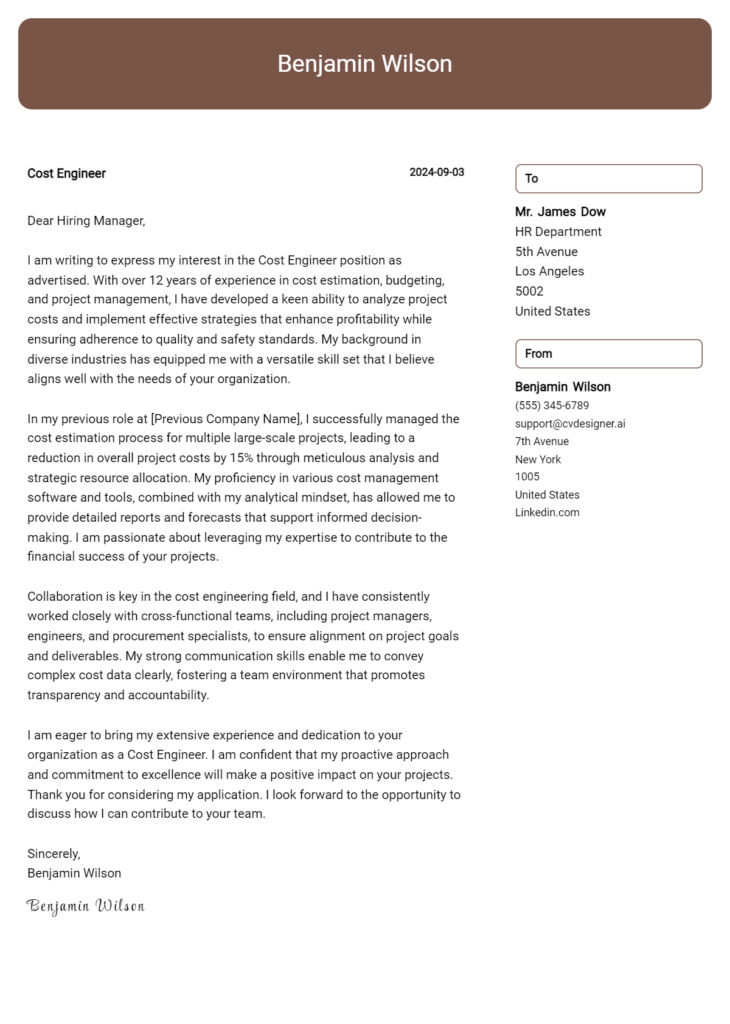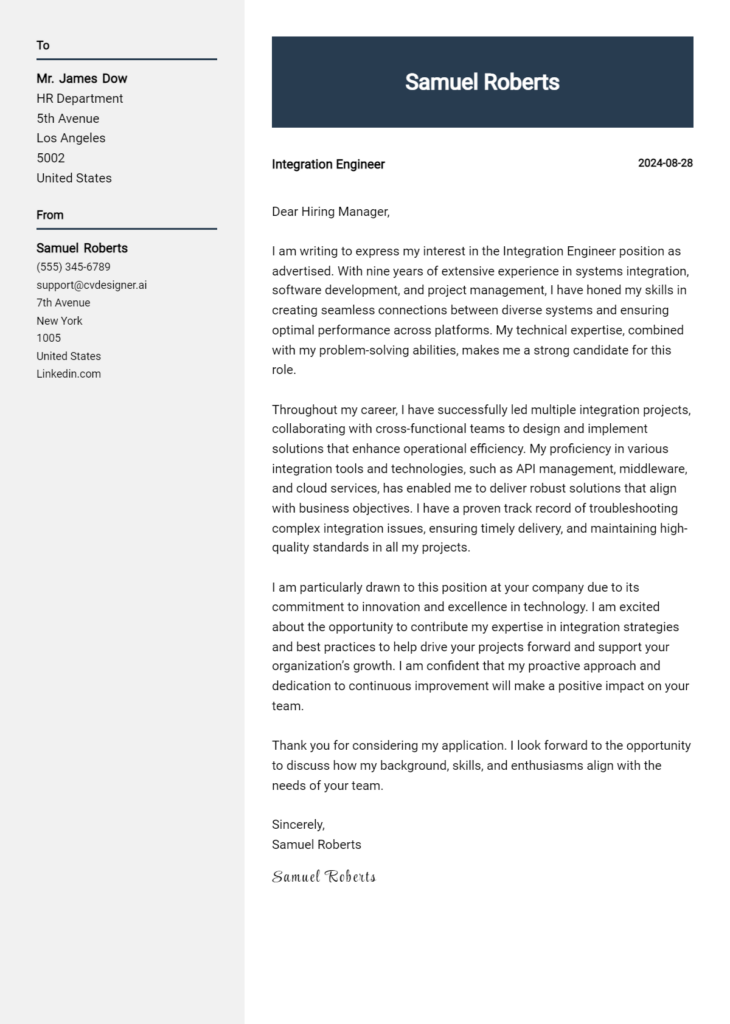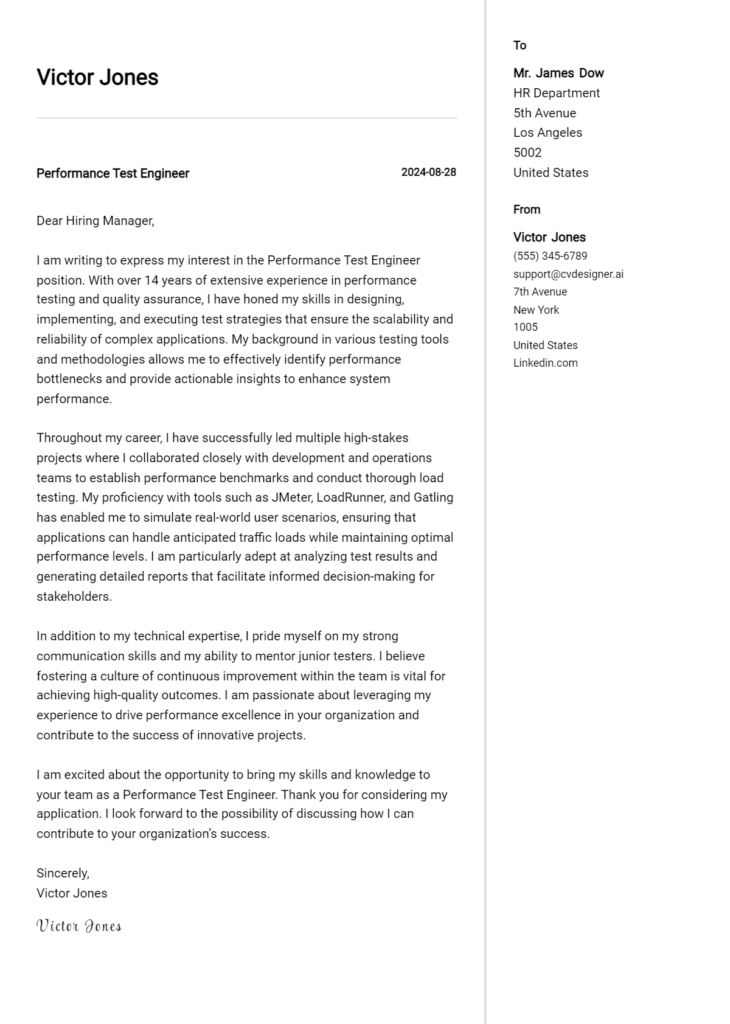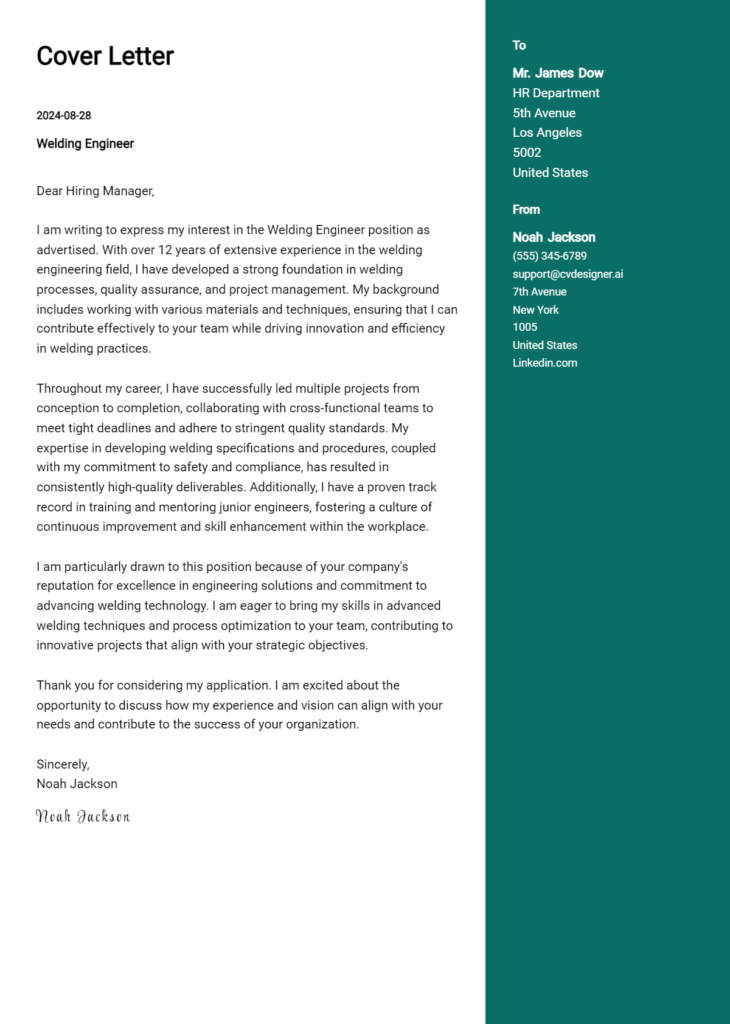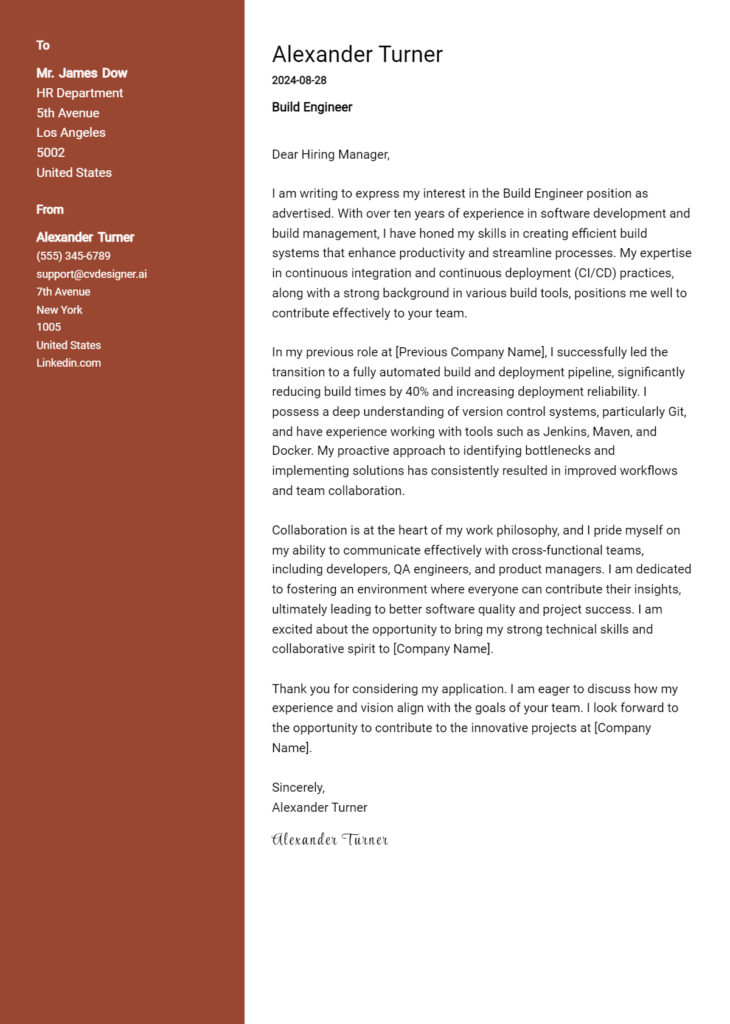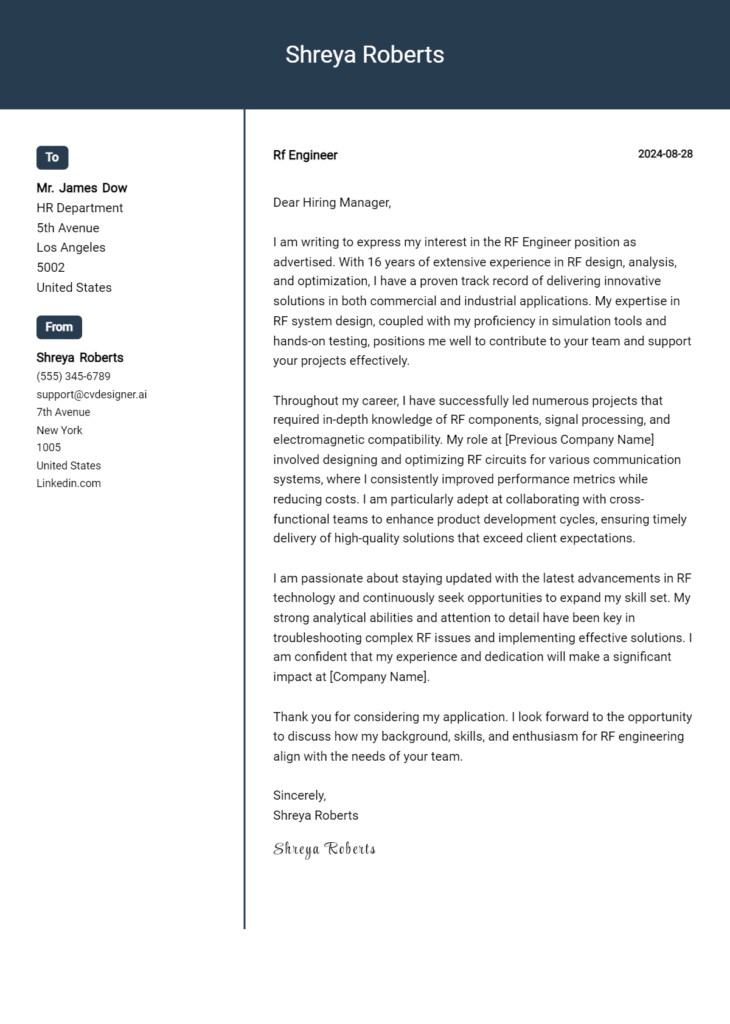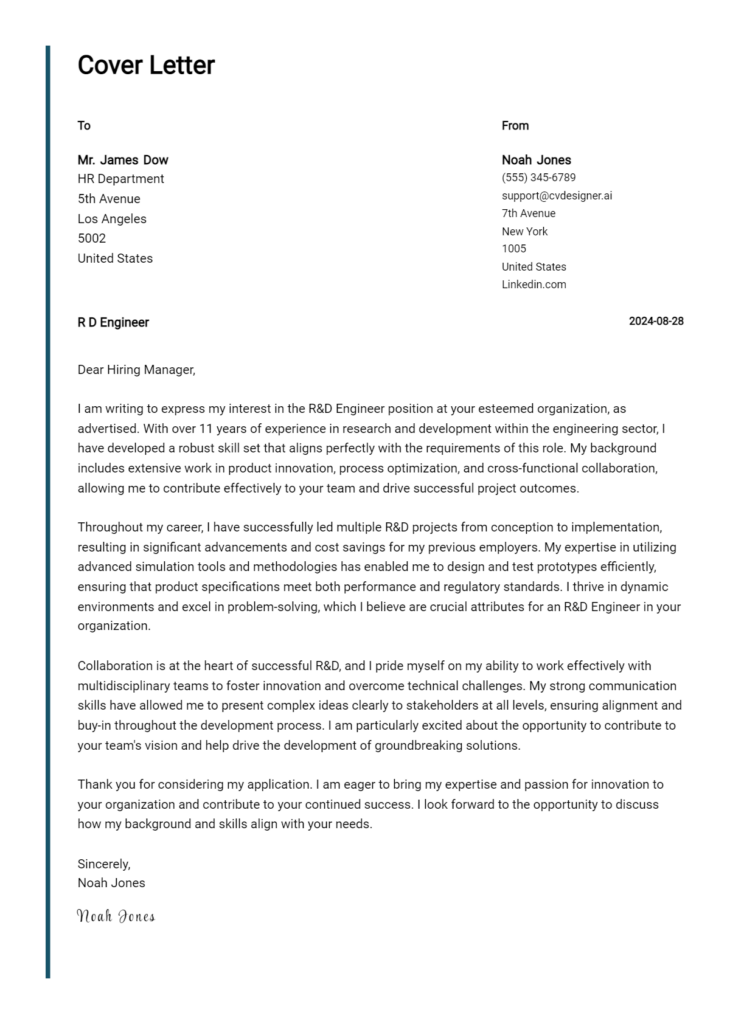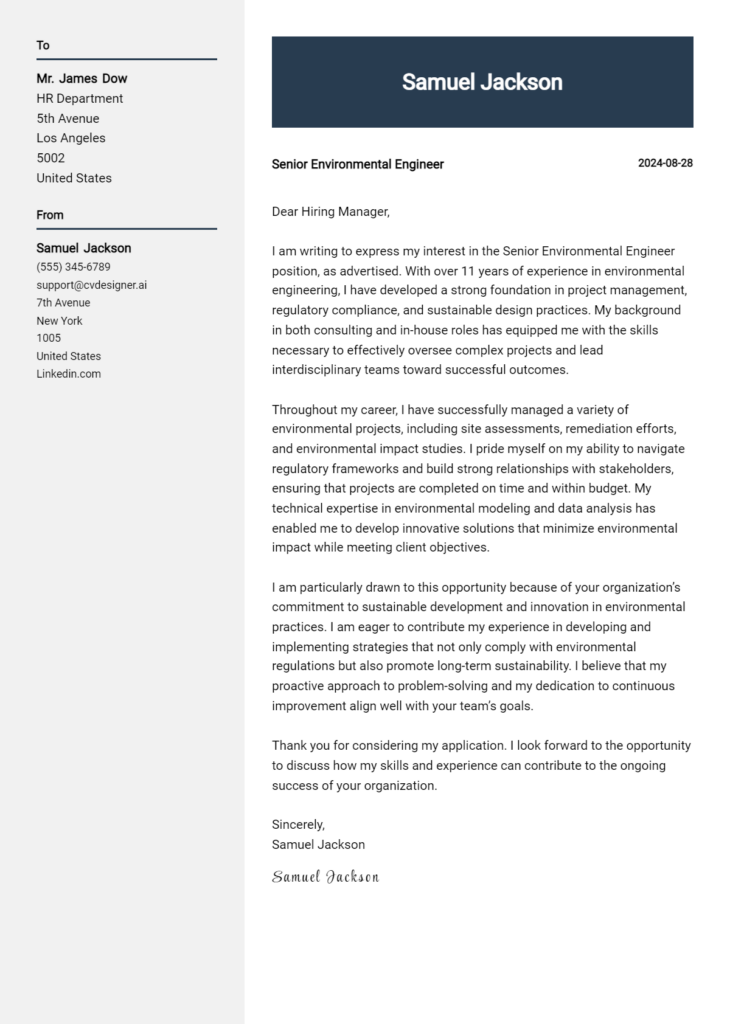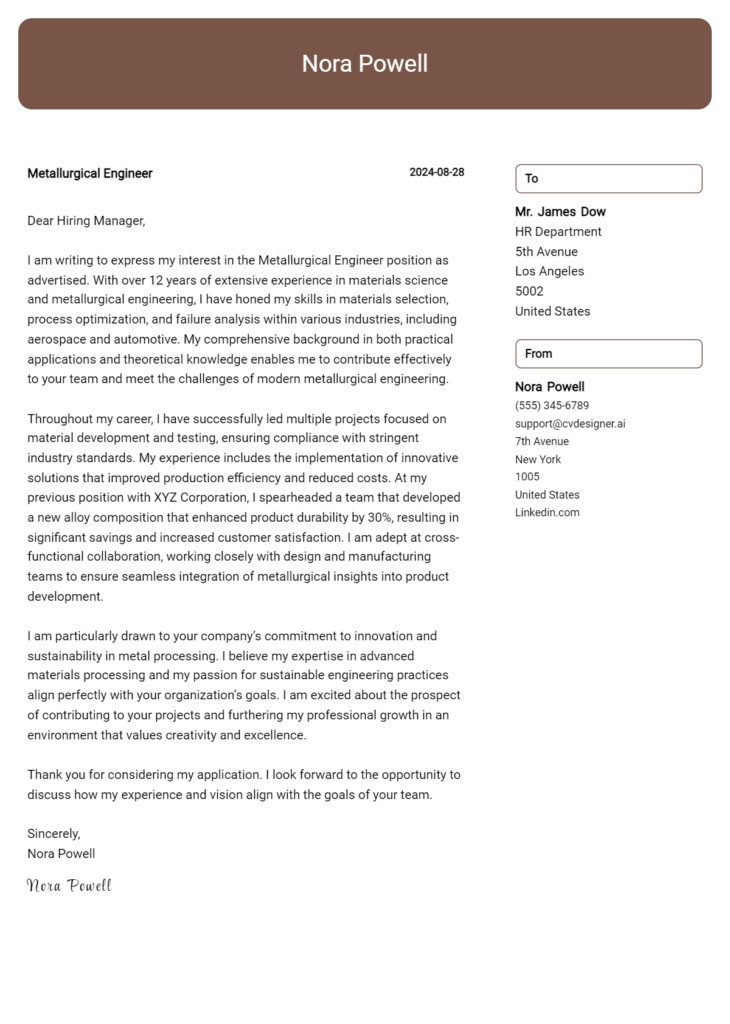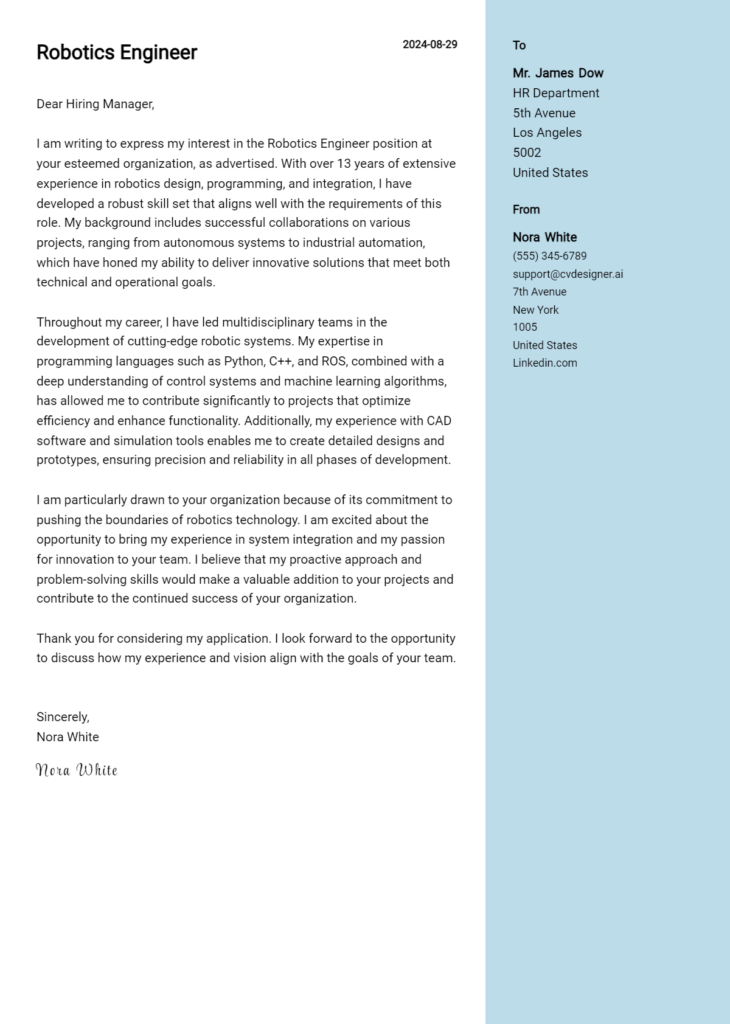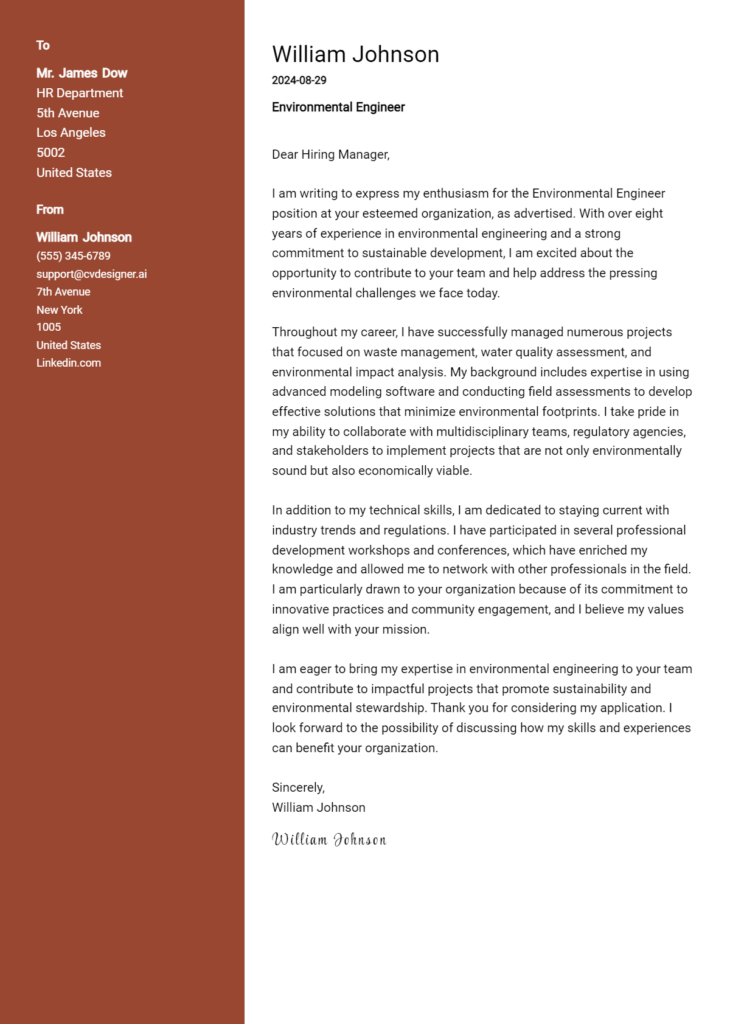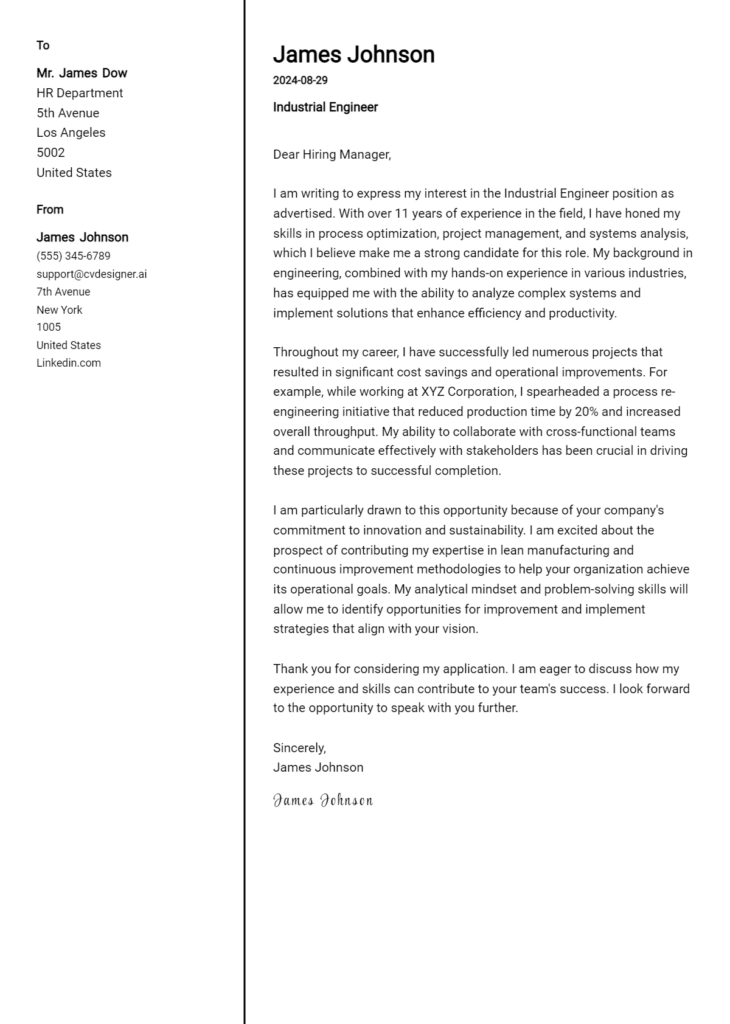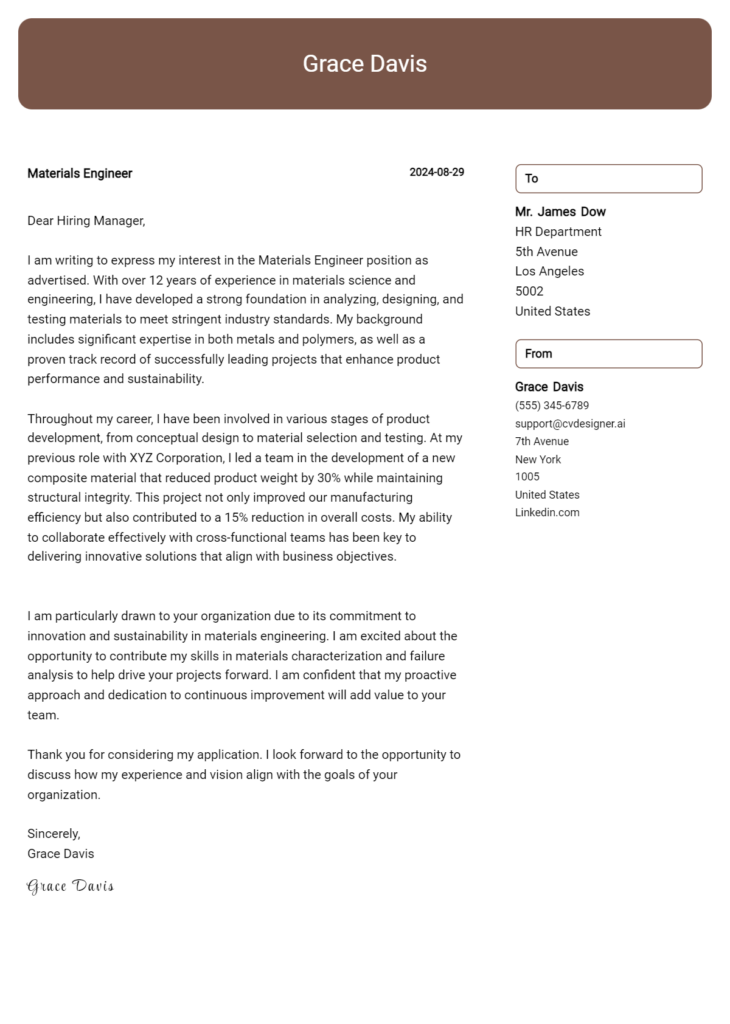Most Popular Field Engineer Cover Letter Examples
Explore additional Field Engineer cover letter samples and guides and see what works for your level of experience or role.
Are you ready to take the next step in your Field Engineer career? Crafting a compelling cover letter can make all the difference in securing that coveted interview. In this comprehensive guide, we will walk you through the essential elements of writing an effective cover letter tailored specifically for the Field Engineer role. You'll learn what a Field Engineer cover letter accomplishes, the key components to include, and how to format it for maximum impact. Plus, we’ll provide three different level cover letter examples to inspire your own writing. To help you avoid common pitfalls, we’ll highlight mistakes that can undermine your application. By the end of this article, you'll have a solid understanding of how to present yourself as the ideal candidate. Here’s what you can expect to find:
- What does a Field Engineer Cover Letter accomplish?
- Key Components of a Field Engineer Cover Letter
- Format a Field Engineer Cover Letter
- Three different level cover letter examples
- Common Mistakes to Avoid in a Field Engineer Cover Letter
- Key Takeaways
Dive in, and let’s unlock the secrets to a standout Field Engineer cover letter!
What does a Field Engineer Cover Letter accomplish?
A cover letter for a Field Engineer serves as a crucial introduction to your qualifications and experience, allowing you to highlight your technical skills and project management expertise in a personalized manner. It provides an opportunity to express your enthusiasm for the role and align your background with the specific needs of the employer, making a compelling case for why you are the ideal candidate. By showcasing your ability to solve problems on-site and collaborate effectively with teams, a well-crafted cover letter can set you apart from other applicants. To ensure your cover letter is impactful, consider using a cover letter guide for tips on structure and content, or utilize a cover letter builder to create a professional-looking document tailored to your unique qualifications.
Key Components of a Field Engineer Cover Letter
- Introduction and Purpose: Begin your cover letter with a strong opening that introduces yourself and clearly states the position you are applying for. Mention how you learned about the job opportunity and express your enthusiasm for the role.
- Relevant Experience and Skills: Highlight your specific experience and skills that make you a suitable candidate for the Field Engineer position. Discuss any relevant projects you've worked on, technologies you're familiar with, and how your background aligns with the job requirements.
- Problem-Solving Abilities: Emphasize your problem-solving skills and how they have contributed to successful project outcomes in your previous roles. Provide examples of challenges you've faced in the field and how you overcame them, showcasing your ability to adapt and think critically.
- Conclusion and Call to Action: Wrap up your cover letter by reiterating your interest in the position and the value you can bring to the company. Include a call to action, inviting the hiring manager to discuss your application further. For more tips on how to structure your cover letter, check out this cover letter format, and for inspiration, refer to these cover letter examples.
How to Format a Field Engineer Cover Letter
As a dedicated and technically skilled Field Engineer, crafting a compelling cover letter is crucial to showcasing your qualifications and passion for the role. Here are key points to consider when formatting your cover letter:
- Begin with a professional header that includes your name, address, phone number, and email, followed by the date and the employer's contact information.
- Start with a strong opening sentence that clearly states the position you are applying for and expresses your enthusiasm for the opportunity.
- Highlight your relevant technical skills, such as proficiency in engineering software, project management tools, or specialized field equipment.
- Mention your educational background and any relevant certifications that enhance your credibility in the engineering field.
- Include specific examples of past projects or experiences where you successfully resolved technical challenges or improved operational efficiency.
- Emphasize your ability to work collaboratively with cross-functional teams, showcasing your interpersonal skills and experience in a team environment.
- Discuss your commitment to safety and adherence to industry regulations, demonstrating your understanding of the importance of compliance in fieldwork.
- Mention your willingness to travel and work in various environments, as this flexibility is often essential for field engineering roles.
- Conclude with a strong closing statement that expresses your eagerness to bring your skills and experience to the prospective employer, inviting them to discuss your application further.
- End with a professional sign-off, such as "Sincerely," followed by your name.
Field Engineer Entry-Level Cover Letter Example #1
I am writing to express my interest in the Field Engineer position at [Company Name], as advertised on [Job Board/Company Website]. With a recent degree in [Your Degree] from [Your University] and hands-on experience gained through internships and academic projects, I am eager to apply my technical skills and problem-solving abilities in a dynamic engineering environment.
During my internship at [Previous Company], I had the opportunity to work alongside seasoned engineers on various field projects. I assisted in conducting site assessments, collecting data, and analyzing results to support project development. This experience not only enhanced my technical knowledge of engineering principles but also allowed me to develop strong communication skills, as I collaborated with cross-functional teams and presented findings to stakeholders. My role required me to be detail-oriented and proactive in identifying potential issues, which I believe will be invaluable in a field engineering role.
In addition to my internship experience, I completed several projects during my academic career that involved practical applications of engineering concepts. For instance, in my senior design project, I led a team in designing a [specific project/solution], where we focused on optimizing performance while adhering to budget constraints. This project taught me the importance of teamwork, time management, and adaptability in a fast-paced environment—skills that I am excited to bring to [Company Name].
I am particularly drawn to [Company Name] because of its commitment to innovation and sustainability in engineering solutions. I am eager to contribute my enthusiasm for engineering and my dedication to excellence to your team. I am confident that my educational background and hands-on experience make me a strong candidate for the Field Engineer position.
Thank you for considering my application. I look forward to the opportunity to discuss how my skills and experiences align with the needs of your team. I am excited about the possibility of contributing to [Company Name] and am eager to bring my passion for engineering to your esteemed organization.
Field Engineer Mid-Level Cover Letter Example #2
I am writing to express my interest in the Field Engineer position at [Company Name] as advertised on [Where You Found the Job Posting]. With over [X years] of experience in the engineering field, specifically in [specific areas of expertise, e.g., telecommunications, construction, or energy], I am excited about the opportunity to contribute to your team and support [Company Name]'s commitment to innovative solutions and exceptional service.
In my most recent role at [Previous Company Name], I successfully managed multiple projects from inception through completion, ensuring that all engineering specifications and project timelines were met. I collaborated closely with project managers, contractors, and other engineers to streamline operations and enhance productivity, which resulted in a [specific measurable outcome, e.g., 15% reduction in project delivery time]. My hands-on experience in troubleshooting equipment and systems has also allowed me to develop effective solutions to complex challenges, ensuring minimal downtime and maintaining high levels of customer satisfaction.
Additionally, my background in conducting site assessments and generating comprehensive reports has equipped me with the analytical skills necessary to identify inefficiencies and propose actionable recommendations. I have been involved in training junior engineers and field technicians, fostering a collaborative environment that encourages knowledge sharing and continuous improvement. My ability to communicate complex technical information clearly and concisely has proven invaluable when working with diverse teams and clients.
I am eager to bring my expertise in [specific skills relevant to the job, e.g., project management, system design, or field testing] to [Company Name]. I am particularly impressed by [something notable about the company, e.g., their commitment to sustainability or innovative technology], and I believe that my proactive approach and dedication to quality align well with your organization's values. I look forward to the opportunity to discuss how my background, skills, and enthusiasms can contribute to the continued success and growth of [Company Name]. Thank you for considering my application. I hope to speak with you soon.
Field Engineer Experienced Cover Letter Example #3
I am writing to express my interest in the Field Engineer position at [Company Name], as advertised on [Job Board/Company Website]. With over [X years] of comprehensive experience in the field, I have honed my skills in project management, technical troubleshooting, and client relations, making me a strong candidate for this role. My background in [specific engineering discipline, e.g., civil, mechanical, electrical] and my commitment to delivering high-quality results align perfectly with your team’s objectives.
During my tenure at [Previous Company Name], I successfully managed multiple projects simultaneously, overseeing the installation and maintenance of [specific systems or equipment relevant to the job]. One of my key achievements was leading a team in the successful execution of a [specific project or task], which resulted in a [percentage] increase in operational efficiency and a significant reduction in costs. My ability to analyze complex technical issues and implement effective solutions has consistently contributed to project success and client satisfaction.
I possess extensive experience in utilizing advanced engineering software and tools such as [list relevant software/tools], which has enabled me to conduct detailed analyses and streamline project workflows. Additionally, my strong communication skills have allowed me to effectively collaborate with cross-functional teams and stakeholders, ensuring that all project requirements are met and exceeded. I am adept at training and mentoring junior engineers, fostering a collaborative environment that promotes knowledge sharing and professional growth.
I am particularly drawn to [Company Name] because of its commitment to innovation and excellence in the engineering field. I am excited about the opportunity to contribute to your team and to help drive projects that align with your company’s vision. I am confident that my proven track record of delivering results, combined with my technical expertise, makes me a valuable addition to your organization.
Thank you for considering my application. I look forward to the opportunity to discuss how my experience and skills can benefit [Company Name] and contribute to the success of your projects. I am eager to bring my expertise in field engineering to your esteemed company and am available at your convenience for an interview.
Cover Letter Tips for Field Engineer
When crafting a cover letter for a Field Engineer position, it's essential to tailor your content to highlight not only your technical abilities and engineering expertise but also your practical experience in fieldwork. Begin with a strong introduction that captures the hiring manager's attention, and then clearly articulate your qualifications, focusing on specific projects or challenges you've successfully navigated in the field. Emphasize your problem-solving skills, adaptability, and ability to work collaboratively with diverse teams. A well-structured cover letter should convey your passion for engineering, your commitment to safety and quality, and your readiness to contribute to the prospective employer's goals.
- Customize Your Letter: Address the hiring manager by name and reference the specific job title and company to show your genuine interest.
- Highlight Relevant Experience: Detail your hands-on experience in engineering projects, emphasizing your role in field operations, troubleshooting, and project management.
- Showcase Technical Skills: Mention specific tools, technologies, and methodologies you are proficient in that are relevant to the job description.
- Demonstrate Problem Solving: Provide examples of challenges you faced in the field and how you successfully resolved them, showcasing your critical thinking and adaptability.
- Emphasize Safety and Compliance: Highlight your understanding and adherence to safety regulations and industry standards, which is crucial in field engineering.
- Include Soft Skills: Showcase interpersonal skills such as communication, teamwork, and leadership, which are essential for working effectively on-site with various stakeholders.
- Express Enthusiasm for the Role: Convey your passion for field engineering and your eagerness to contribute to the company's success, making a personal connection to the organization's values.
- Keep It Concise: Aim for a clear and concise letter that is no longer than one page, ensuring that each sentence adds value to your application.
How to Start a Field Engineer Cover Letter
As you embark on writing your cover letter for a Field Engineer position, it's essential to grab the employer's attention from the very first sentence. Your introduction should convey your enthusiasm, relevant skills, and a glimpse of your qualifications. Here are some examples to inspire you:
- With a solid background in engineering and hands-on experience in fieldwork, I am excited to apply for the Field Engineer position at [Company Name]. My passion for solving complex technical challenges and my commitment to delivering high-quality results align perfectly with your team's objectives.
- As a dedicated and results-driven engineer with over [X years] of experience in [specific field or industry], I am thrilled to submit my application for the Field Engineer role at [Company Name]. I have a proven track record of successfully managing projects in challenging environments, and I am eager to bring my expertise to your esteemed organization.
- I am writing to express my interest in the Field Engineer position advertised at [Company Name]. With a Bachelor’s degree in [Engineering Discipline] and extensive hands-on experience in field operations, I am confident in my ability to contribute effectively to your projects while ensuring safety and efficiency.
- Having developed my engineering skills through rigorous academic training and practical field experience, I am excited about the opportunity to join [Company Name] as a Field Engineer. My ability to adapt to diverse environments and my keen problem-solving skills make me an ideal candidate for this role.
- As a highly motivated engineer with [X years] of field experience, I am eager to apply for the Field Engineer position at [Company Name]. My expertise in [specific skills or technologies relevant to the job] has equipped me to tackle the unique challenges presented in the field, and I am enthusiastic about the possibility of contributing to your team.
How to Close a Field Engineer Cover Letter
In closing your cover letter for a Field Engineer position, it's important to reiterate your enthusiasm for the role and express your eagerness to contribute to the company. Here are some effective examples:
“I am excited about the opportunity to bring my expertise in field engineering to your team and am looking forward to discussing how my skills can help drive your projects to success.”
“Thank you for considering my application. I am eager to contribute my technical knowledge and problem-solving abilities to your esteemed organization and hope to discuss my application further.”
“I appreciate your time and consideration, and I am enthusiastic about the possibility of collaborating with your team to deliver innovative engineering solutions.”
“I look forward to the opportunity to speak with you about how my experience and passion for field engineering align with the goals of your company.”
Common Mistakes to Avoid in a Field Engineer Cover Letter
When applying for a position as a Field Engineer, your cover letter serves as your first impression and a vital component of your application. A well-crafted cover letter can effectively showcase your technical skills, problem-solving abilities, and suitability for the role. However, there are several common pitfalls that candidates often encounter when writing their cover letters. Avoiding these mistakes can significantly enhance your chances of securing an interview.
- Neglecting to Tailor the Letter: Using a generic cover letter instead of customizing it for the specific job and company can make you appear disinterested.
- Overlooking Formatting: Poor formatting, such as inconsistent font sizes or lack of clear paragraphs, can detract from the professionalism of your letter.
- Using Jargon Excessively: While technical language is important, overusing jargon can alienate readers who might not be familiar with specific terms.
- Focusing on Responsibilities Instead of Achievements: Simply listing job responsibilities rather than highlighting specific accomplishments can make your application less compelling.
- Failing to Address the Hiring Manager: Not addressing the letter to a specific person can come off as impersonal and may suggest a lack of effort in your application.
- Being Too Vague: Providing vague statements without concrete examples or measurable results can weaken your case and fail to demonstrate your capabilities.
- Ignoring Keywords from the Job Description: Failing to incorporate relevant keywords from the job description may result in your cover letter being overlooked by Applicant Tracking Systems (ATS).
- Exceeding Length Requirements: Writing a cover letter that is too long can lose the reader's attention; aim for a concise and focused letter.
- Neglecting Proofreading: Spelling and grammatical errors can create a negative impression and suggest a lack of attention to detail.
- Not Including a Call to Action: Ending your letter without a clear call to action can miss the opportunity to prompt further engagement from the hiring manager.
Key Takeaways for a Field Engineer Cover Letter
In crafting a compelling cover letter for a Field Engineer position, it's essential to highlight both your technical expertise and your hands-on experience in the field. Emphasizing your ability to troubleshoot complex issues, collaborate with diverse teams, and implement innovative solutions will set you apart from other candidates. Be sure to tailor your letter to the specific job description, showcasing relevant projects and accomplishments that demonstrate your capability to excel in this role. For those seeking to enhance their application further, utilizing cover letter templates can provide a structured and professional layout to ensure your skills shine.
Moreover, to streamline the writing process and create a personalized touch, consider using a cover letter builder. This tool can help you organize your thoughts and present your qualifications in a clear, impactful manner. Remember, the cover letter is your opportunity to make a strong first impression, so articulate your passion for the field, your commitment to safety and quality, and your readiness to tackle the challenges of a Field Engineer. With the right approach, your cover letter can open doors to exciting career opportunities.
